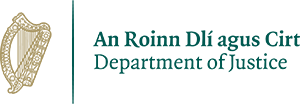In This Section
Introduction
A non-EEA national who is lawfully resident and legally employed in another EU member state may be allowed to work on a temporary basis for that employer in the State without the need to obtain a work permit. You may apply for an employment visa, called a Van der Elst visa, if you satisfy these and other conditions.
Who can apply?
You can apply for this visa if you are:
You should read the immigration arrangements applying to persons seeking to avail of the Van der Elst process before you make your visa application.
When can you apply?
You can apply for an employment (Van der Elst) visa up to 3 months before your date of travel to Ireland. If you are visiting another State prior to travelling to Ireland, you must have the relevant visa for that State in your passport before applying for an Irish visa.
How to apply?
Answer all questions in AVATS fully and honestly.
When you have completed the online application process, you must follow the instructions on the summary application form that is created by the online system. The summary form will contain information on where you are to submit your supporting documentation.
You must print sign and date the summary form and submit it with your supporting documentation. You may be required to provide your biometrics information as part of the application process.A guide to supporting documentation is set out below.
Fees
Payment methods and currency options may differ between offices. Contact your application office to find out how to pay. Some applicants are exempt and do not pay visa fees. Current fees are:
The visa fee covers the administrative cost of processing your application. It will not be refunded if your application is withdrawn or refused. The website of the visa office, embassy or consulate will have details about additional charges and local payment options.
How long will it take?
Applications are processed in date order. You are advised not to purchase travel tickets before you know the outcome of your visa application.
Processing times vary between countries. They also vary during high volume periods during the year. However, you can generally expect a decision within 8 weeks from the date on which your application is lodged at the visa office, embassy or consulate.
Your application may take longer if for example you have not submitted the necessary supporting documentation, your supporting documentation needs to be verified or because of your personal circumstances (for example if you have a criminal conviction).
You can check the processing times for the visa office, embassy or consulate that is handling your application on their website. If your application is being processed by the visa office in Dublin you can check the date of the applications currently being processed on the visa decisions page.
Activities not permitted with this visa
You are not permitted to:
Supporting documentation
The documents required are important because they provide information about your personal circumstances in the country from which you are applying.
It is your responsibility to satisfy the visa officer that a visa should be granted for the purpose sought. The submission of any or all of these documents does not guarantee that your application will be successful. Original documents must be provided. If you submit a document that is not in English or Irish, it must be accompanied by a full translation. Each translated document must contain:
All letters submitted from a business, company or other organisation must be on official headed paper so they can be verified, and show the organisation’s:
The visa officer considers each application on its merits and may request additional information or documentation.
Guide to supporting documentation
Your signed and dated summary application form and the appropriate fee (where applicable) must be accompanied by the supporting documentation set out below.
“Any State issued official documents, such as Birth Certificates, Marriage Certificates, Death Certificates, Divorce Certificates that were issued by a State outside of the EEA or Switzerland, must be attested/apostilled as genuine by the Ministry of Foreign Affairs in the State that issued the document, in order that it can be accepted as evidence for Irish visa purposes. Such documents are required to be translated into English or Irish, if necessary. Translations done outside the EEA or Switzerland must also be attested/apostilled as genuine, by the Ministry of Foreign Affairs in the country in which the translation occurs. Send us both the original documents and the certified translations. Translations done in the EEA or Switzerland do not need to be attested by the Ministry of Foreign Affairs.
Any State issued official documents, such as Birth Certificates, Marriage Certificates, Death Certificates, Divorce Certificates that were issued by a State within the EEA or Switzerland do not require to be attested as genuine from Member States. A translation of these documents is not required where a multilingual standard form (MSF) is also provided. Such MSF forms are available from Member States on request. If an MSF is not provided by you then those documents are required to be translated into English or Irish, if necessary in order that it can be accepted as evidence for Irish visa purposes. Translations done outside the EEA or Switzerland must also be attested/apostilled as genuine, by the Ministry of Foreign Affairs in the country in which the translation occurs. Translations done in the EEA or Switzerland do not need to be attested by the Ministry of Foreign Affairs. We will also accept the Extract of a European marriage certificate, issued in accordance with the “Convention on the issue of multilingual extracts from civil status records“, as proof of a marriage within the EEA or Switzerland. Send us both the original documents and the certified translations.”
Return of documents
All documents accompanying your application must be originals. You should keep copies of all the documents that you provide.
Original documents such as marriage, birth or death certificates will be returned to you. However, other documents such as bank statements or letters of invitation will not be returned. If there are particular documents that you wish to have returned, please provide a list of these documents with the application.

